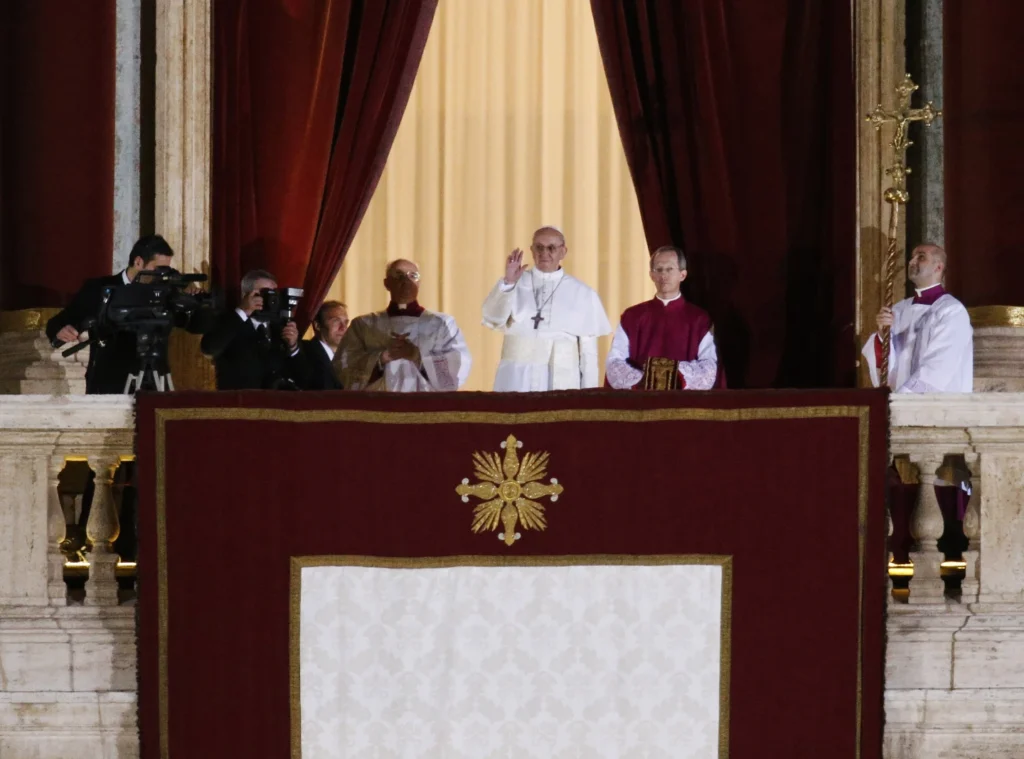VATICAN CITY — The first sign of where the Catholic Church is headed under a new pope may come in the form of a single, symbolic choice: the name he takes.

When the cardinal protodeacon steps onto the balcony of St. Peter’s Basilica to proclaim “Habemus Papam!” — “We have a pope!” — the world hears two things in Latin: the new pontiff’s birth name and the name he will carry as pope. That chosen name is more than tradition — it often offers a glimpse into the theological and pastoral vision that will guide the new papacy.
If the next pope calls himself Francis II, it would likely signal a continuation of Pope Francis’ emphasis on social justice, environmental stewardship, and advocacy for the marginalized. But a choice like Pius — historically linked to traditionalist leadership — could suggest a decisive shift back toward conservative doctrine and liturgical orthodoxy.
“In the deepest recesses of their mind, when they start the conclave, everyone will walk in there with a name in their head,” said Natalia Imperatori-Lee, a theologian at Manhattan College.
The tradition of papal name changes dates to the sixth century, when a Roman named Mercurius — named after a pagan god — became Pope John II to avoid pagan association. By the 11th century, newly elected popes regularly adopted names to signify continuity with past pontificates, particularly the names of the popes who made them cardinals.
Some names have remained popular: John, the most used papal name, has been chosen 23 times. Benedict and Gregory follow closely behind with 16 each. Yet since the mid-20th century, the trend has shifted toward names that reflect personal vision rather than simple homage.
“Even now, as we are waiting for the new pope, the name with which he will present himself will help us to understand the horizon towards which he wants to proceed,” said Rev. Roberto Regoli, a historian at Rome’s Pontifical Gregorian University.
Francis, elected in 2013, was the first pope to take the name of St. Francis of Assisi, the patron saint of humility, poverty, and peace. In doing so, he aligned his papacy with outreach to the poor, immigrants, and marginalized communities — including the LGBTQ+ faithful — while championing environmental care.
Benedict XVI, chosen by German Cardinal Joseph Ratzinger in 2005, reflected a return to European spiritual identity. He cited both Benedict XV, who served during World War I, and St. Benedict, founder of Western monasticism. That name, some theologians say, could reappear if cardinals want to reset from the Francis era.
“If we get a Benedict, then we will know that the cardinals chose to see Francis as an anomaly,” said Imperatori-Lee.
John Paul was a hybrid name first used in 1978 by John Paul I, who sought to honor the two Vatican II-era reformers, John XXIII and Paul VI. John Paul II kept the name, signaling continuity with reforms that embraced vernacular Masses and interfaith outreach.
Some papal names now carry complex legacies. Pius, once dominant, has become associated with hardline conservatism. Pius IX ordered the controversial abduction and forced conversion of a Jewish child in 1858. Pius X fueled the anti-modernist movement, and Pius XII has been criticized for silence during the Holocaust.
“It is now a name that is hostage to some Catholic groups that can be considered traditionalists,” Regoli said.
Names like Innocent and Urban, once common in the medieval church, are unlikely to be revived in the modern era. “I don’t think anyone will pick Innocent,” Imperatori-Lee said, noting the name’s tone amid modern scandals. “I don’t think that would be the right choice.”
A new pope isn’t bound to history. Francis proved that in 2013 when he broke centuries of precedent by choosing a name never used before. A wholly new papal name would suggest a bold new direction, a deeply personal agenda, or a break from both progressives and traditionalists alike.
“This would open a new season and could mean that his program is not in line with any of his predecessors,” Regoli said.
One speculative possibility: Ignatius, in honor of St. Ignatius of Loyola, founder of the Jesuit order. Such a choice would signal direct homage to Pope Francis’ roots and Jesuit values of education, discernment, and global outreach.
“It would be interesting,” Imperatori-Lee said. “We’ve never had one of those.”
Copied: AP



